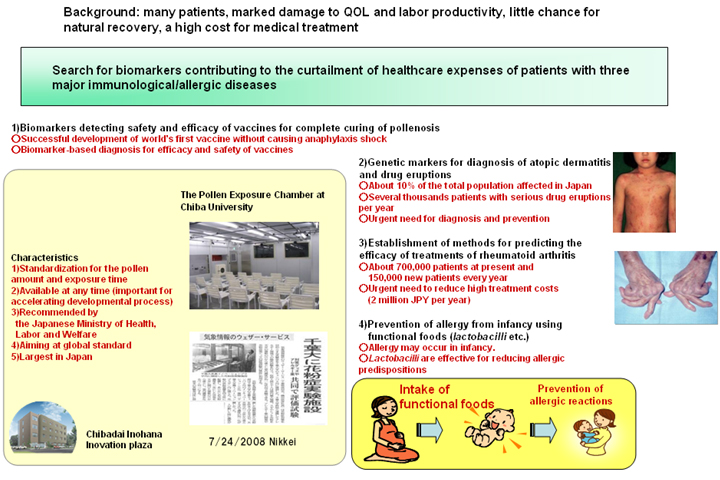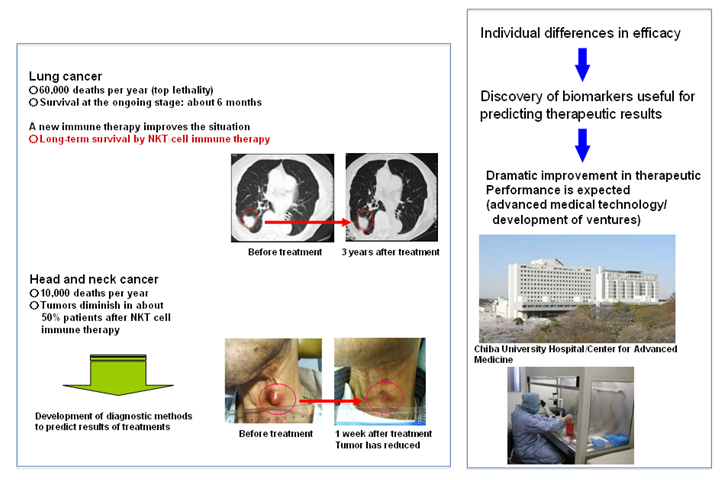
Research Project 2: Research and development of biomarkers for predicting treatment efficacy and prognosis of refractory immune/allergy-related diseases
Subproject 1: Search for biomarkers useful for predicting therapeutic efficacy for immunological, allergic and autoimmune diseases

ChibaUniversity has been actively performing clinical research aiming at developing new therapeutic methods for refractory immune-related diseases for which only symptomatic treatments were hitherto available and has developed promising treatments such as vaccination for allergic diseases as well as effective immune cell therapy for cancer. However, the efficacy of the developed methods has so far been variable amongst patients and it has been difficult to relate the efficacy with patient types. Enhancement of the curing rate has thus been strongly anticipated.
In this subproject, therefore, we will aim at identifying biomarkers useful for predicting the efficacy of therapeutic methods by analyzing samples taken from patients before, during and after the treatment together with the detailed clinical data accumulated to date. Analysis will be conducted for sublingual immunotherapy for cedar pollinosis, biologics for rheumatoid arthritis, and immune cell therapy for cancer. The pollen exposure chambers at the ChibadaiInohanaInnovationPlaza are expected to play a particularly vital role in collecting samples for the development of therapeutic agents for pollinosis. Biomarkers will also be evaluated for the efficacy of therapy of patients with atopic dermatitis and drug eruptions, as well as the efficacy of functional foods such as probiotics and prebiotics.
Subproject 2: Search for biomarkers useful for predicting therapeutic efficacy for cancer immunotherapy

ChibaUniversity and RIKEN have been actively engaged in a joint translational research (TR) to develop NKT cell-based immunotherapy for cancer and the results are being returned to the society in the form of an advanced medical treatment. In this subproject, we will develop biomarkers for predicting therapeutic efficacy to dramatically improve the performance of newly developed method of immune cell therapy.